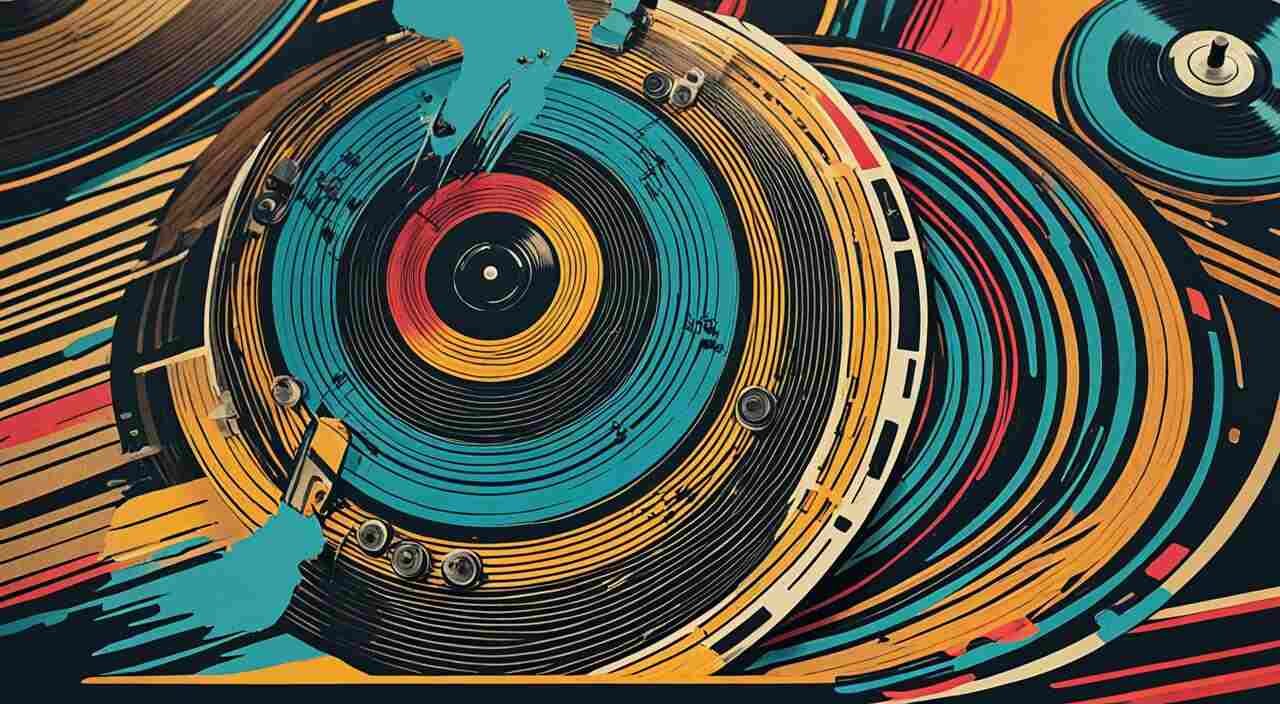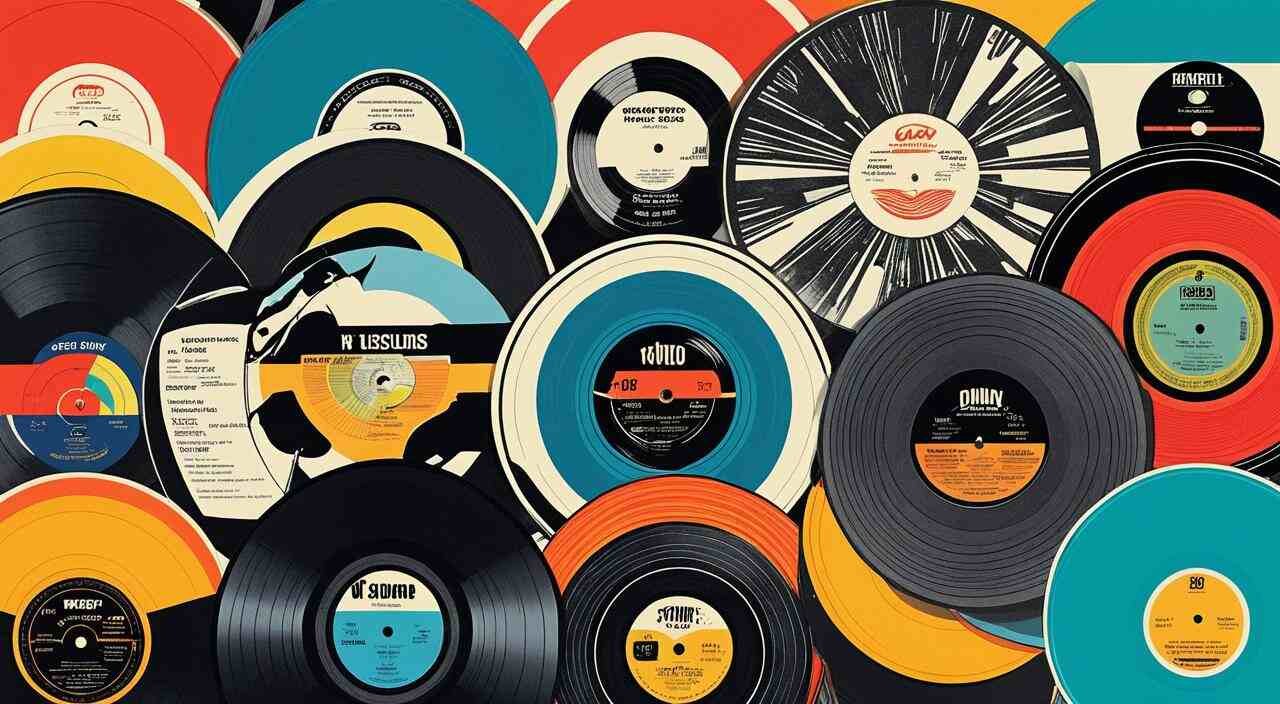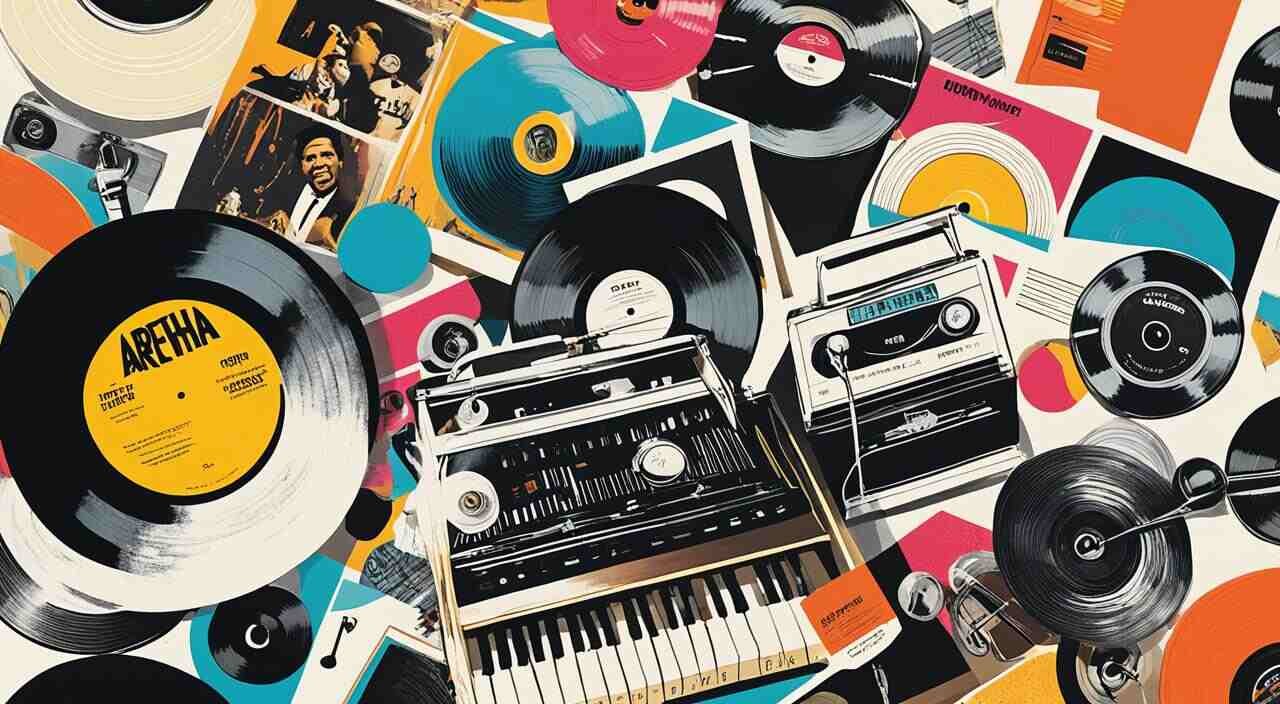Vinyl records have a captivating history that dates back to the late 19th century. The first commercial vinyl record was introduced in 1948, and it quickly gained popularity due to its durability, superior sound quality, and increased storage capacity compared to its predecessors. However, in the 1980s, the rise of cassette tapes and compact discs led to a decline in the popularity of vinyl records. They were considered obsolete by the 1990s. In recent years, however, vinyl records have experienced a remarkable resurgence.
Many audiophiles believe that vinyl records offer superior sound quality compared to digital formats. The tangible nature and timeless appeal of vinyl, along with the thrill of collecting, have contributed to its renewed popularity. The revival of vinyl records has also impacted the music industry, leading to increased demand, the revival of record stores, and the release of new and reissued turntables and audio equipment.
Key Takeaways:
- Vinyl records were first introduced in 1948 and gained popularity due to their durability, sound quality, and storage capacity.
- In the 1980s, vinyl records faced a decline in popularity with the rise of cassette tapes and compact discs.
- In recent years, vinyl records have experienced a remarkable resurgence due to superior sound quality, collecting culture, and appreciation for analog sound.
- The revival of vinyl records has impacted the music industry by increasing demand, revitalizing record stores, and spurring the release of new turntables and audio equipment.
- The enduring allure of vinyl records continues to captivate music enthusiasts and drive the growth of the vinyl market.
The Evolution of Vinyl Records
The vinyl format has undergone significant changes throughout history, catering to the diverse preferences of music enthusiasts. From new releases to limited editions, there is something for everyone in the world of vinyl records.
New Releases
New vinyl releases offer collectors the opportunity to access exclusive music before it becomes available in other formats. This exclusivity creates a sense of anticipation and excitement among vinyl enthusiasts, who eagerly await the arrival of their favorite artists’ latest creations.
Classic Reissues
Classic reissues play a crucial role in keeping vinyl records alive. They not only provide an opportunity to relive timeless classics but also incorporate remastered audio and high-quality pressing techniques. These reissues breathe new life into beloved recordings, ensuring that their magic continues to captivate audiences.
Limited-Edition Releases
Limited-edition vinyl releases have become highly sought-after among collectors. These releases often feature unique artwork, colored vinyl variants, and numbered editions, making them prized possessions among vinyl aficionados. The scarcity and exclusivity of these releases contribute to their significant value in the collecting community.
Vinyl Singles and EPs
Vinyl singles and EPs remain cherished formats, particularly for DJs and collectors. These compact discs typically feature a selection of tracks that showcase an artist’s creativity and versatility. Vinyl singles and EPs provide a tangible and immersive listening experience, allowing listeners to savor every moment of the music.
Box Sets
Box sets are a treasure trove for music enthusiasts, offering a comprehensive collection of records, sometimes accompanied by additional memorabilia. These sets often include multiple albums and singles, allowing fans to explore an artist’s body of work in its entirety. Box sets provide a delightful experience and make for an exceptional addition to any vinyl collection.
The evolution of vinyl records has shaped a vibrant collecting culture, resulting in a continued appreciation for this timeless format. Whether it’s the allure of exclusivity, the pursuit of classic favorites, or the joy of discovering new music, vinyl records continue to hold a special place in the hearts of music lovers.
Next, we’ll explore the enduring popularity of vinyl records and the impact of its revival on the music industry.
The Enduring Popularity of Vinyl Records
Vinyl records have remained a staple in the music world, and their enduring popularity can be attributed to various factors. One significant driver of the vinyl revival is the growing trend of appreciating analog sound. Many music enthusiasts argue that vinyl records offer a unique and immersive listening experience that cannot be replicated by digital formats. The warm, rich tones and the nuances of the music pressed into vinyl create a sense of depth and authenticity that appeals to audiophiles and casual listeners alike.
Another contributing factor to the enduring popularity of vinyl records is the vibrant collecting culture that surrounds them. Vinyl collecting has become more than just a hobby; it’s a lifestyle and a community. Collectors take pride in curating their collections, searching for rare and limited-edition releases, and connecting with like-minded individuals who share their love for vinyl. The tangible nature of vinyl records, with their large album covers and dazzling artwork, adds a tactile and visual element that digital formats often lack.
The vinyl revival has also had a significant impact on the music industry. There has been a surge in demand for vinyl records, leading to the resurgence of record stores and the creation of new record labels specializing in vinyl releases. Artists and labels have embraced vinyl, recognizing its cultural significance and unique appeal. They have started releasing new albums with exclusive artwork, bonus tracks, and even partnering with streaming services to release limited vinyl editions of popular albums.
Looking to the future, the vinyl format continues to show promise. Emerging technologies promise innovations in turntables and audio equipment, enhancing the vinyl listening experience even further. The enduring popularity of vinyl records, fueled by the trends of analog sound appreciation and the vinyl collecting culture, solidifies its place in the music industry and keeps the “vinyl revival” trend alive and thriving.
FAQ
What is the history of vinyl records?
Vinyl records have a captivating history that dates back to the late 19th century. The first commercial vinyl record was introduced in 1948, and it quickly gained popularity due to its durability, superior sound quality, and increased storage capacity compared to its predecessors.
How has the vinyl format evolved over time?
The vinyl format has evolved over time, offering music enthusiasts different types of records to enjoy. New releases allow collectors to get their hands on exclusive music before it hits other formats. Classic reissues provide remastered audio and high-quality pressing techniques that bring beloved classics to life. Limited-edition releases are highly sought-after by vinyl aficionados and can hold significant value. Vinyl singles and EPs are still beloved by DJs and collectors alike. Box sets offer a treasure trove of records, often including multiple albums, singles, and other memorabilia.
Why are vinyl records still popular today?
Vinyl records have remained popular for several reasons. The revival of vinyl records has been driven by trends such as the appreciation for analog sound and the collecting culture surrounding vinyl. Many music enthusiasts argue that vinyl records offer a unique and immersive listening experience that cannot be replicated by digital formats. The vinyl revival has also had a significant impact on the music industry, leading to an increased demand for vinyl records, the growth of record stores, and the release of new turntables and audio equipment.
What impact has the vinyl revival had on the music industry?
The revival of vinyl records has impacted the music industry, leading to increased demand, the revival of record stores, and the release of new and reissued turntables and audio equipment. Artists and labels have embraced vinyl, releasing new albums with exclusive artwork and bonus tracks, as well as reissuing classic albums. Streaming services have also played a role in the vinyl resurgence, partnering with record labels to release exclusive vinyl editions of albums.
What does the future hold for vinyl records?
The future of vinyl records looks promising, with emerging technologies promising innovations in turntables and continued interest from artists and music enthusiasts alike. The enduring popularity of vinyl records is a testament to the enduring magic and allure of the format.








Leave a Reply